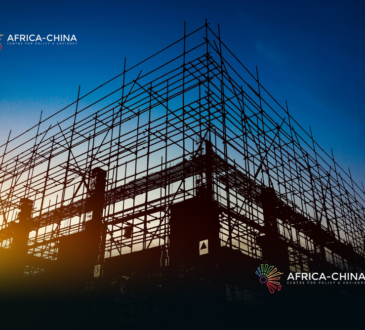
Over the years, the use of plastics as packaging in Ghana has increased. The growth in single plastic use can be largely attributed to its pricing, which makes it a relatively affordable option for granting safe access to water and packaging food in many communities. Plastic pollution isn’t confined to Ghana, its a problem on a global scale. The theme for Earth Day 2024 “Planet vs Plastics” is a reminder of our collective responsibility to reduce plastic pollution in Ghana and beyond.
Tides of plastic
According to a 2023 report by the World Economic Forum (WEF), Ghana is believed to produce approximately 1.1 million tonnes of municipal plastic annually with a year on year growth rate of 5.4%. Population growth serves as the primary driver, coupled with increased plastic consumption.
The effects of this are seen across the country. Ghana’s scenic landscapes, rivers, and coastlines are marred with large amounts of plastic waste. Plastic bags, bottles and other non- biodegradable items often find their way into water bodies, contributing to the degradation of aquatic ecosystems. Marine life suffers immensely, as turtles, fish and seabirds often mistake plastic for food.
Another significant contributor to Ghana’s plastic waste dilemma stems from the deficiency in sufficient waste management infrastructure.
Ghana grapples with the absence of a robust system for effectively collecting, recycling, and disposing of waste. This deficiency results in a substantial portion of the plastic waste generated in the country being irresponsibly discarded in the environment. Consequently, without adequate infrastructure to manage plastic waste, the country faces heightened environmental risks and challenges associated with plastic pollution.
Policy Pathways
The ongoing effort to address plastic pollution is a paramount issue for the government of Ghana. Recognising the necessity for collaboration, the government has actively engaged various stakeholder groups to tackle this challenge.
Partnerships with international agencies,non-governmental organisations, and private enterprises have facilitated the mobilisation of resources, technical expertise, and financial support in the fight against plastic pollution.
In October 2019, Ghana made history by becoming the first African nation to join the Global
Plastic Action Partnership, leading to the establishment of the Ghana National Plastic Action Partnership (GNPAP). As a national platform for multi stakeholder cooperation, GNPAP facilitates initiatives and funding to scale up and accelerate recycling partnerships within the country.
By bringing together different actors and resources, we understand that GNPAP aims to strengthen Ghana’s recycling ecosystem, making it more efficient, sustainable and accessible to communities across the country.
In November 2021, GNPAP unveiled the National Action Roadmap, a strategic framework outlining the country’s approach to managing plastics throughout their lifecycle while concurrently fostering continued economic growth.
Turning the tide
While the government makes substantial progress towards enhancing the cleanliness and safety of the nation, it is imperative for all members of the society to actively contribute and assume responsibility.
Organisations have a significant duty and role in combatting the issue of plastic pollution. Businesses frequently depend on single-use plastics for packaging purposes across various sectors including retail, food and beverage, hospitality, and manufacturing.
The environmental impact of business operations is considerable and cannot be disregarded. Organisations that fail to prioritise sustainable practices pose a risk of intensifying the very issue the government is striving to eliminate.
At PwC, we understand the responsibility we bear to reduce our impact on the environment. In January 2020, we took a proactive stance against plastic pollution by educating our staff about recycling. In a concerted effort to reduce our environmental footprint, we implemented a series of initiatives aimed at eliminating the use of plastic within our office to allow us to reduce, reuse and recycle.
One noticeable change was the discontinuation of plastic water dispensers and cups. Instead, employees were provided with reusable water bottles to refill from filtered water taps conveniently located on each floor. This shift not only eliminated the need for single-use plastic cups but also encouraged staff to embrace sustainable alternatives.
Additionally, we implemented a robust waste management system to promote recycling and reduce landfill waste. Each floor of our office is equipped with clearly labelled waste bins for the segregation of recyclable and non-recyclable materials. This systematic approach ensures that waste is properly sorted and directed towards recycling facilities, minimising our environmental
impact.
Ghana’s mission to eradicate plastic pollution, requires the active support of businesses and all segments of the community. Through collective efforts and collaboration, businesses, government, and citizens alike are actively working towards a common goal of reducing plastic waste and fostering environmental sustainability. By embracing sustainable practices, implementing innovative solutions, and promoting awareness, Ghana demonstrates its commitment to safeguarding the environment, leading the charge towards a brighter, greener future for all.
By Andrea Opoku-Dwamenah, Manager PwC Ghana







